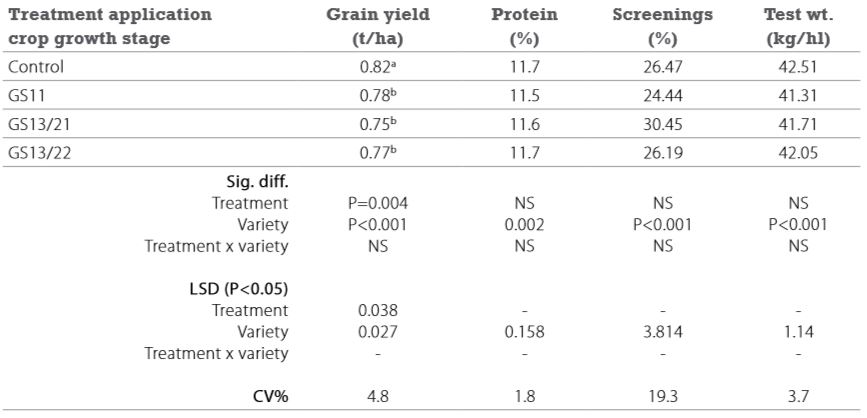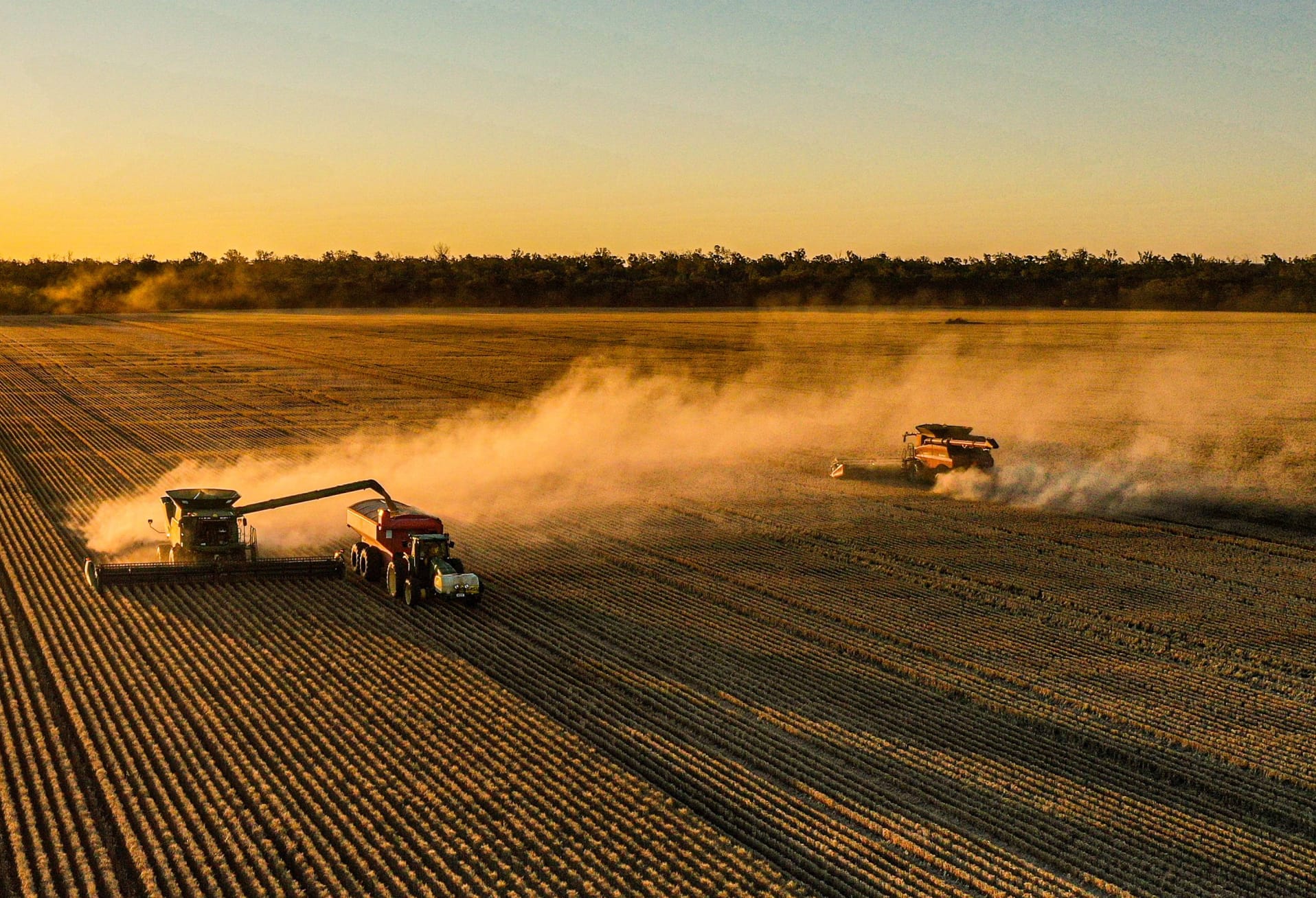Take home messages
- Oats treated with Boxer Gold® yielded 9.7 per cent less than the untreated oats.
- This trial was conducted in a decile 1 season with very poor spring rainfall and very hot conditions. The effect of the Boxer Gold may have been exacerbated by these extreme conditions or the lower yielding season may have reduced the effect.
Background
The production of oats for hay, grain and as a grazing crop has increased significantly in recent years. There is increasing demand for good quality oaten hay for export and for grain as a source of raw or processed feed for livestock which attracts a premium over other hay and grain alternatives.
Oats are a competitive crop capable of producing more tillers than other cereal crops. However, the herbicide options to control ryegrass in oats are limited which means that oats must be grown in ‘clean’ paddocks or cut for hay to prevent seed set. While this is a sound integrated weed management (IWM) strategy, the presence of ryegrass impurities in hay downgrades its quality and, consequently, potential returns.
There are three main herbicide options available for the control of ryegrass in oats:
- Diuron® (Diuron) – registered for the suppression of annual ryegrass, barley grass and silver grass in WA
- Dual Gold® (metalachlor) – registered for the suppression of annual ryegrass
- Glean® (chlorosulfuron) – was registered for annual ryegrass control, but this registration ceased on 30 June 2015.
Diuron and Dual Gold are effective only for suppression of ryegrass and Glean has a long re-cropping interval (>9 months) for barley and legume crops, which may preclude it from use. As a result, another herbicide option would be desirable.
Boxer Gold has been used to control annual ryegrass in wheat for over 10 years and has been shown to also have limited efficacy on wild oats. Given the close familial relationship between wild oats and oats the potential exists for Boxer Gold to be used in oats for the control of annual ryegrass. This trial was undertaken to explore the crop safety of Boxer Gold on oats.
Note: The control of ryegrass in oats is not on the label for Boxer Gold and was used only for the interest of the trial. Any use of Boxer Gold on oat crops is off-label and all aspects of off-label use are the user’s responsibility, including residue control, environmental safeguards, occupational health and safety and animal welfare.
Aim
To determine whether there are any negative yield affects associated with the use of Boxer Gold on oats.
Trial details
Location: Berriwillock
Soil type: Sandy clay
Annual rainfall: 241mm
GSR (Apr-Oct): 141mm
Crop type: Mitika and Wintaroo oats
Sowing date: 24 April
Seeding equipment: Knife points, press wheels, 30cm row spacing
Target plant density: 150 plants/m²
Harvest date: 10 November
Trial average yield: 0.8t/ha
Trial inputs
Fertiliser: Granulock Supreme Z + Impact @ 50kg/ha
Herbicide: refer to Table No. 1
Method
A replicated field trial was established at BCG’s Berriwillock research site. Mitika (milling) and Wintaroo (hay/grazing/feed grain) oats were sown in a split plot and complete randomised design on 24 April. All plots received consistent agronomic management with the exception of the in-crop treatment applications where Boxer Gold was applied at three separate timings (Table 1). The trial was assessed for yield and quality parameters.
Table 1. Pre-sowing and in-crop herbicide treatment applications, dates and crop growth stage.
Results and interpretation
The oats crops suffered a significant yield penalty when an in-crop application of Boxer Gold was applied (Table 2). This occurred in all three treatment timings, with yields 9.7 per cent lower on the treated plots than on the untreated. No significant quality parameter differences resulted from the application of Boxer Gold. In this trial, no treatment by variety interactions were realised which means that both Mitika and Wintaroo oats were equally affected by the applications of Boxer Gold.
Table 2. Treatment mean grain yield, protein, screenings and test weight.
Commercial practice
It is apparent from this trial that Boxer Gold applied to oats can result in a yield penalty. While the penalty in this trial (~10%) was significant, a grower might be prepared to accept this loss if ryegrass control could be improved. The short term loss may be well compensated by the long term benefits of reduced seed set.
It is apparent that Boxer Gold use in oats may be viable. This may give growers greater flexibility in paddock selection for oat crops and may allow other factors to be considered (eg. potential production) rather than considering only the ryegrass weed burden in the paddock.
The results from this trial showed no yield penalty associated with applications at later growth stages. Given this, it is apparent that there is a wide window in which ryegrass control can occur. However, in wheat, Boxer Gold should not be applied post GS25.
It is important to note that this trial was conducted in a decile 1 season with very poor spring rainfall and under very hot conditions. The effect of the Boxer Gold may have been exacerbated by these extreme conditions or the lower yielding season may have reduced the effect. These results should be viewed with caution and examined under a range of seasonal conditions.
On-farm profitability
While the potential for Boxer Gold to be used in oats to control annual ryegrass looks promising, at around $35/ha ($14/L) it is an expensive herbicide option. Given the rising costs of production and an apparent decline in rainfall, any input of this magnitude should be considered carefully. This cost should be weighed up against the potential returns of the crop or the cost of alternative control measures such as windrow burning. Growers also need to consider the limitations of herbicides like Boxer Gold that require moisture to be active. At the optimal growth stage for ryegrass control, the soil conditions may not be conducive to herbicide activation and the potential for control would be lost.
Acknowledgements
This trial was funded by BCG members through their membership.


